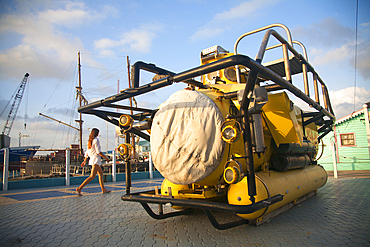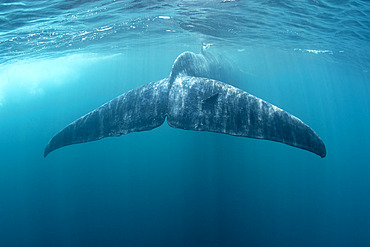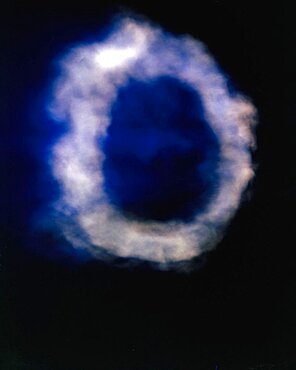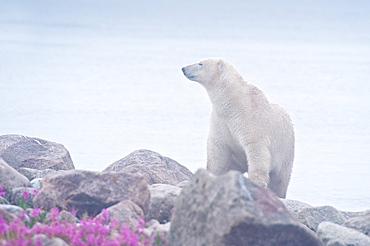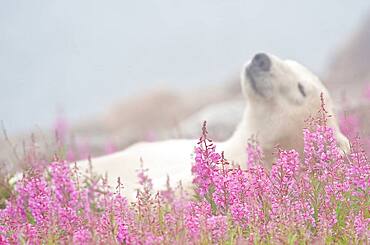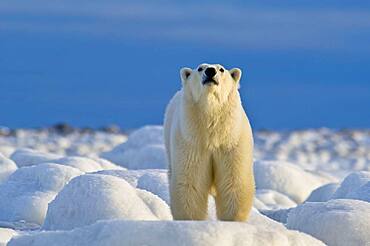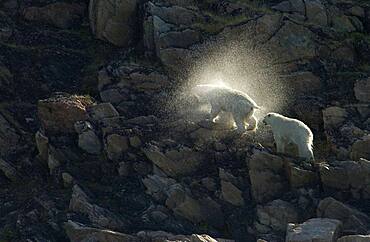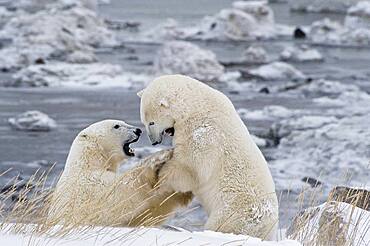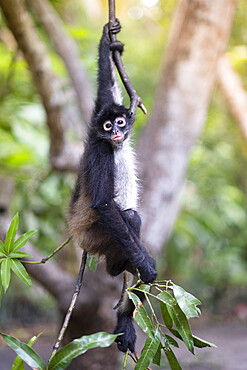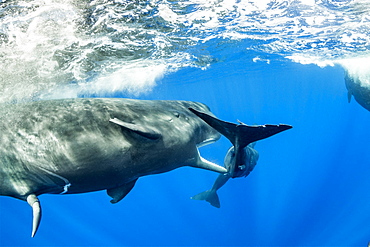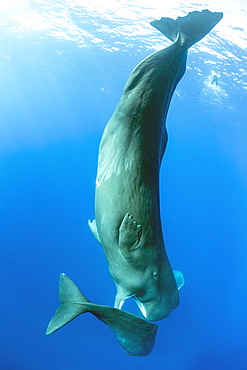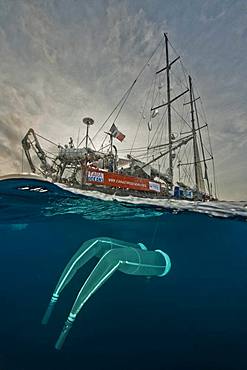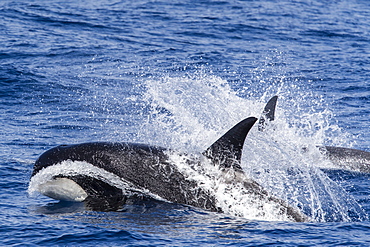Recent searches
Loading...
1116-52824 - Young woman walking past an historical deep ocean, research submarine on display on the waterfront at George Town, Grand Cayman, Cayman Islands, Caribbean
832-403882 - Elderly couple retirement home with laptop
1200-522 - Eurasian brown bear (Ursus arctos arctos) sub-adults play fighting in cotton grass meadow, Finland, Europe
832-400382 - Happy young family with kids playing a card game at home sitting on the floor. Mother, father, son and daughters playing card games in a living room
1174-11456 - A sub-adult male Lion, Panthera leo, standing on a rock, Londolozi Wildlife Reserve, Sabi Sands, South Africa
1174-11322 - A cheetah and her sub adult cub, sit together on a termite mound.
805-1466 - Construction workers on a prime location scaffolded building site in the business area of Memnagar, Ahmedabad, Gujarat, India, Asia
1350-4880 - Government House, Prime Minister,??s Office, (Stjornarradid and Stjornarradshusid), Laekjargata, Reykjavik, Iceland
1350-4884 - Government House, Prime Minister,??s Office, (Stjornarradid and Stjornarradshusid), Laekjargata, Reykjavik, Iceland
1350-4998 - Statue of Ho Chi Minh holding a child, outside People's Committee Building, Ho Chi Minh City, (Saigon), Vietnam
1348-5271 - Prime crew of the Apollo 12 lunar landing mission
1113-106183 - Pensioners on the subway with warning notices in the foreground, Toyko, Japan
1113-105848 - Expertly grilled prime rib is served during a barbecue evening in a Residence Villa accommodation at Six Senses Fiji Resort, Malolo Island, Mamanuca Group, Fiji Islands, South Pacific
1113-106051 - Evening shot of traffic and the classic London Underground sign. Shot in Piccadilly Circus in London, UK.
860-289980 - Tail of Blue whale (Balaenoptera musculus brevicauda) is the largest animal ever known to have existed. This may be the pygmy sub-species of blue whale, Balaenoptera musculus. Mirissa, Sri Lanka, Indian Ocean Photo taken under permit
1349-1166 - Operation Fishbowl BLUEGILL TRIPLE PRIME, 1962
1350-286 - Polar Bear (Ursa maritimus) in fireweed (Epilobium angustifolium) on an island off the sub-arctic coast of Hudson Bay, Churchill, Manitoba, Canada. Bears come to spend the summer loafing on the island and looking for a careless seal or dead whale to wash up. Global warming has shortened their winter so they are increasingly looking for food in the summer.
1350-265 - Polar Bear (Ursa maritimus) in fireweed (Epilobium angustifolium) on an island off the sub-arctic coast of Hudson Bay, Churchill, Manitoba, Canada.
1350-280 - Polar Bear (Ursa maritimus) in fireweed (Epilobium angustifolium) on an island off the sub-arctic coast of Hudson Bay, Churchill, Manitoba, Canada. Bears come to spend the summer loafing on the island and looking for a careless seal or dead whale to wash up. Global warming has shortened their winter so they are increasingly looking for food in the summer.
1350-256 - Polar Bear (Ursa maritimus) in fireweed (Epilobium angustifolium) on an island off the sub-arctic coast of Hudson Bay, Churchill, Manitoba, Canada. Bears come to spend the summer loafing on the island and looking for a careless seal or dead whale to wash up. Global warming has shortened their winter so they are increasingly looking for food in the summer.
1350-274 - Polar Bear (Ursa maritimus) on sub-arctic Hudson Bay ice and snow, Churchill, MB, Canada
1350-264 - Polar Bear (Ursa maritimus) on sub-arctic Hudson Bay ice and snow, Churchill, MB, Canada
1350-211 - Drifting pack ice silhouette against sunset clouds reflected in Hudson Bay near Churchill Manitoba Northern Sub-arctic Canada
1350-244 - Polar Bear (Ursa maritimus) in fireweed (Epilobium angustifolium) on an island off the sub-arctic coast of Hudson Bay, Churchill, Manitoba, Canada. Bears come to spend the summer loafing on the island and looking for a careless seal or dead whale to wash up. Global warming has shortened their winter so they are increasingly looking for food in the summer.
1350-246 - Polar Bear (Ursa maritimus) on sub-arctic Hudson Bay ice and snow, Churchill, MB, Canada
1350-284 - Polar Bear (Ursa maritimus) on sub-arctic Hudson Bay ice and snow, Churchill, MB, Canada
1350-275 - Polar Bear (Ursa maritimus) on sub-arctic Hudson Bay ice and snow, Churchill, MB, Canada
1350-200 - Polar Bear (ursus maritimus) with relaxed yawn in Fireweed (Epilobium angustifolium) on sub-arctic flower covered island at Hubbart Point, Hudson Bay, near Churchill, Manitoba, Northern Canada..
1350-218 - Young red fox kit ( Vulpes vulpes ) portrait near Churchill Manitoba Hudson Bay Northern Sub-arctic Canada
1350-294 - Polar Bear (Ursa maritimus) on sub-arctic Hudson Bay ice and snow, Churchill, MB, Canada
1350-320 - Polar Bear (Ursa maritimus) in fireweed (Epilobium angustifolium) on an island off the sub-arctic coast of Hudson Bay, Churchill, Manitoba, Canada.
1350-199 - Polar Bear (ursus maritimus) relaxing in Fireweed (Epilobium angustifolium) on sub-arctic flower covered island at Hubbart Point, Hudson Bay, near Churchill, Manitoba, Northern Canada..
1350-292 - Polar Bear (Ursa maritimus) on sub-arctic Hudson Bay ice and snow, Churchill, MB, Canada
1350-216 - Wary young red fox kit ( Vulpes vulpes ) napping near boreal den near Churchill Manitoba Hudson Bay Northern Sub-arctic Canada
1350-201 - Mother Polar Bear (ursus maritimus) with cubs dripping on ice in sub-arctic Wager Bay near Hudson Bay, Churchill area, Manitoba, Northern Canada
1350-318 - Polar Bear (Ursa maritimus) on sea ice off the sub-arctic coast of Hudson Bay, Churchill, Manitoba, Canada. Bears come to the coast of Hudson Bay in Fall waiting for the ice to freeze, and looking for a careless seal or dead whale to wash up. Global warming has shortened their winter so they are increasingly anxious as they wait for winter. While they wait, they engage in frequent wrestling matches to determine a mating hierarchy for the breeding season in March and April, and regularly check on the ice to see if it will carry them out to sea.
1350-287 - Polar Bear (Ursa maritimus) on sub-arctic Hudson Bay ice and snow, Churchill, MB, Canada
1350-268 - Polar Bear (Ursa maritimus) on sub-arctic Hudson Bay ice and snow, Churchill, MB, Canada
1350-289 - Polar Bear (Ursa maritimus) on sub-arctic Hudson Bay ice and snow, Churchill, MB, Canada
1350-255 - Polar Bear (Ursa maritimus) on sub-arctic Hudson Bay ice and snow, Churchill, MB, Canada
1350-202 - Mother Polar Bear (ursus maritimus) with cub shaking off water halo on rocky cliff in sub-arctic Wager Bay near Hudson Bay, Churchill area, Manitoba, Northern Canada
1350-266 - Polar Bear (Ursa maritimus) on sub-arctic Hudson Bay ice and snow, Churchill, MB, Canada
1350-319 - Polar Bear (Ursa maritimus) in fireweed (Epilobium angustifolium) on an island off the sub-arctic coast of Hudson Bay, Churchill, Manitoba, Canada.
1350-253 - Polar Bear (Ursa maritimus) on sub-arctic Hudson Bay ice and snow, Churchill, MB, Canada
1350-597 - A Scottish Highland cattle participating at the Great Yorkshire Show, Harrogate, Yorkshire, UK
1350-261 - Polar Bear (Ursa maritimus) on sub-arctic Hudson Bay ice and snow, Churchill, MB, Canada
1350-254 - Polar Bear (Ursa maritimus) on sub-arctic Hudson Bay ice and snow, Churchill, MB, Canada
1350-598 - Great Yorkshire Show, Harrogate, Yorkshire, UK
1350-279 - Polar Bear (Ursa maritimus) on sub-arctic Hudson Bay ice and snow, Churchill, MB, Canada
1350-257 - Polar Bear (Ursa maritimus) on sub-arctic Hudson Bay ice and snow, Churchill, MB, Canada
1350-262 - Polar Bear (Ursa maritimus) on sub-arctic Hudson Bay ice and snow, Churchill, MB, Canada
1116-49529 - Woman signing the word 'Rent' in American Sign Language while communicating with a man
1300-461 - View of Zurich from above with the Prime Tower, Hardbridge and mountains in the background, Zurich, Switzerland, Europe
1300-458 - View of Zurich district 4 and 5 and Prime Tower, Hard Bridge from above at night, Zurich, Switzerland, Europe
819-1291 - Changing of the Guard in front of Maximos Mansion, Greek Prime Minister's office, Athens, Greece, Europe
1176-1042 - Critically Endangered Nicaraguan sub-species of the Black-handed (Geoffroy's) spider monkey (Ateles geoffroyi geoffroyi), El Salvador, Central America
860-287902 - Sub-adult sperm whale try to move away a calf to to mate with a female, (Physeter macrocephalus), Vulnerable (IUCN), The sperm whale is the largest of the toothed whales. Sperm whales are known to dive as deep as 1,000 meters in search of squid to eat. Image has been shot in Dominica, Caribbean Sea, Atlantic Ocean. Photo taken under permit n°RP 16-02/32 FIS-5.
860-287920 - Sub-adult sperm whale try to move away a calf to to mate with a female, (Physeter macrocephalus), Vulnerable (IUCN), The sperm whale is the largest of the toothed whales. Sperm whales are known to dive as deep as 1,000 meters in search of squid to eat. Image has been shot in Dominica, Caribbean Sea, Atlantic Ocean. Photo taken under permit n°RP 16-02/32 FIS-5.
860-287921 - Sub-adult sperm whale try to move away a calf to to mate with a female, (Physeter macrocephalus), Vulnerable (IUCN), The sperm whale is the largest of the toothed whales. Sperm whales are known to dive as deep as 1,000 meters in search of squid to eat. Image has been shot in Dominica, Caribbean Sea, Atlantic Ocean. Photo taken under permit n°RP 16-02/32 FIS-5.
860-287450 - Tara Oceans Expeditions - May 2011. Tara with deployed plancton nets. On "station", the boat is drifting without engine or sails. Tara Oceans, a unique expedition: Tara Oceans is the very first attempt to make a global study of marine plankton, a form of sea life that includes organisms as small as viruses and bacterias, and as big as medusas. Our goal is to better understand planktonic ecosystems by exploring the countless species, learning about interactions among them and with their environment. Marine plankton is the only ecosystem that is almost continuous over the surface of the Earth. Studying plankton is like taking the pulse of our planet. Recently, scientists have discovered the great importance of plankton for the climate: populations of plankton are affected very rapidly by variations in climate. But in turn they can influence the climate by modifying the absorption of carbon. In a context of rapid physico-chemical changes, for example the acidification observed today in the world's oceans, it is urgent to understand and predict the evolution of these particular ecosystems. Finally, plankton is an astonishing way of going back in time ? a prime source of fossils. Over the eons, plankton has created several hundred meters of sediment on the ocean floors. This allows us to go back in time, to the first oceans on Earth, and better understand the history of our biosphere. More than 12 fields of research are involved in the project, which will bring together an international team of oceanographers, ecologists, biologists, geneticists, and physicists from prestigious laboratories headed by Eric Karsenti of the European Molecular Biology Laboratory. Galapagos
765-2075 - Dolphin of the fountain, Piazza Colonna, Palazzo Chigi (residence of the Prime Minister of Italy), Rome, Lazio, Italy, Europe
765-2074 - Palazzo Chigi (residence of the Prime Minister of the Italian Republic), Piazza Colonna, Rome, Lazio, Italy, Europe
1116-42990 - Steams From The Hot Springs Run Off In Sub Zero Winter, Chena Hot Springs Resort, Fairbanks, Alaska, United States Of America
1116-42992 - Close Up Of American Alligator (Alligator Mississippiensis) Resting On A Log In St. Johns River, Blue Spring State Park, Orange City, Florida, United States Of America
1241-165 - Mist rising off the waters of the Bow River in sub-zero winter weather, Canmore, Alberta, Canadian Rockies, Canada, North America
1241-166 - Mist rising off the waters of the Bow River in sub-zero winter weather, Canmore, Alberta, Canadian Rockies, Canada, North America
743-1730 - Impala, Aepyceros melampus, sub-adult male, iMfolozi game reserve, KwaZulu-Natal, South Africa
860-286684 - Blue whale Balaenoptera musculus brevicauda is the largest animal ever known to have existed. This may be the pygmy sub-species of blue whale, Balaenoptera musculus. Mirissa, Sri Lanka, Indian Ocean
832-381580 - Lion (Panthera leo), sub-adult male walking through grass, Etosha National Park, Namibia, Africa
794-4637 - Xinyi downtown district, the prime shopping and financial district of Taipei, Taiwan, Asia
794-4599 - Xinyi downtown district, pedestrian bridge in the prime shopping and financial district of Taipei, Taiwan, Asia
794-4626 - Xinyi downtown district, pedestrian bridge in the prime shopping and financial district, Taipei, Taiwan, Asia
794-4628 - Xinyi downtown district, the prime shopping and financial district, Taipei, Taiwan, Asia
794-4593 - Xinyi downtown district, the prime shopping and financial district of Taipei, Taipei, Taiwan, Asia
794-4591 - Xinyi downtown district, pedestrian bridge in the prime shopping and financial district of Taipei, Taiwan, Asia
1174-4738 - Portrait of a pale chanting goshawk (Melierax canorus) against black background, England
1112-3751 - Adult blue whale (Balaenoptera musculus), sub-surface feeding off the western coast of Spitsbergen, Svalbard Archipelago, Arctic, Norway, Europe
1112-3552 - Zodiac near Type D (sub-Antarctic) killer whale (Orcinus orca), in the Drake Passage, Antarctica, Polar Regions
1112-3553 - A very rare sighting of Type D (sub-Antarctic) killer whales (Orcinus orca) in the Drake Passage, Antarctica, Polar Regions
1112-3548 - A Type D (sub-Antarctic) killer whale (Orcinus orca), surfacing in the Drake Passage, Antarctica, Polar Regions
1112-3554 - An adult bull Type D (sub-Antarctic) killer whale (Orcinus orca), surfacing in the Drake Passage, Antarctica, Polar Regions
1112-3551 - Adult Type D (sub-Antarctic) killer whale (Orcinus orca), surfacing in the Drake Passage, Antarctica, Polar Regions
1112-3549 - Adult bull Type D (sub-Antarctic) killer whale (Orcinus orca), surfacing in the Drake Passage, Antarctica, Polar Regions
1112-3550 - Zodiac near Type D (sub-Antarctic) killer whale (Orcinus orca), in the Drake Passage, Antarctica, Polar Regions
1112-3547 - A very rare sighting of Type D (sub-Antarctic) killer whales (Orcinus orca), in the Drake Passage, Antarctica, Polar Regions
1112-3546 - A young Type D (sub-Antarctic) killer whale (Orcinus orca), surfacing in the Drake Passage, Antarctica, Polar Regions
1112-3545 - A young Type D (sub-Antarctic) killer whale (Orcinus orca), surfacing in the Drake Passage, Antarctica, Polar Regions
1184-2127 - Prime Ministry, Yaounde, Cameroon, Africa
857-94794 - Aerial photograph of A clear blue sub-alpine lake in British Columbia, Canada.
1200-79 - European Brown Bear (Ursus arctos arctos) sub-adults, play fighting on swamp, Suomussalmi, Finland, Europe
826-678 - Alert polar bear (Ursus maritimus) on the rocky, sub-arctic shoreline of the Hudson Bay north of Churchill in Manitoba, Canada, North America
826-677 - Alert polar bear (Ursus maritimus) on sub-arctic tundra grassland north of Churchill in Manitoba, Canada, North America
741-5378 - A sub-adult male lion (Panthera leo) feeding on a buffalo kill, Tsavo, Kenya, East Africa, Africa
746-62673 - Immersion, Farasan Island, Red Sea, Saudi Arabia, Middle East
746-62820 - Underwater, Ustica, Ustica island, Sicily, Italy
